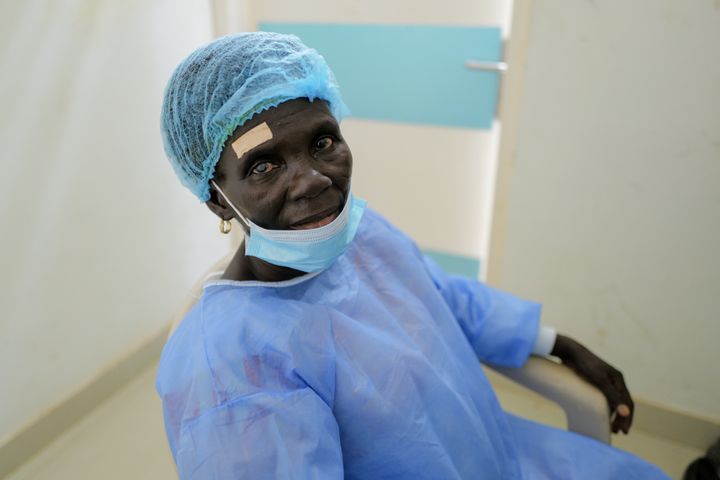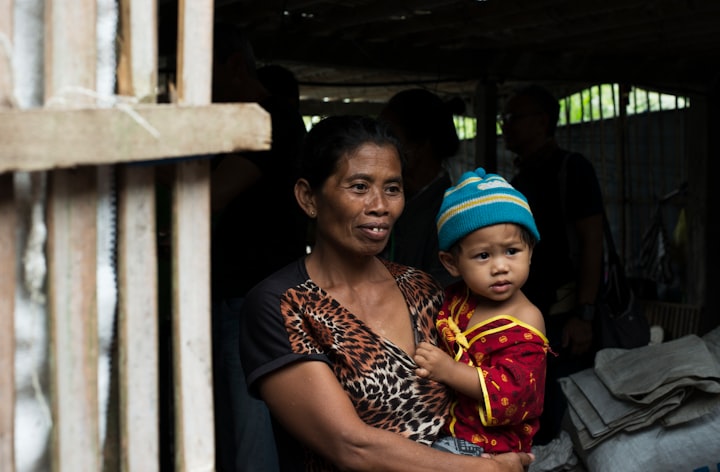Harnessing the Power of Artificial Intelligence to Alleviate Global Poverty

In our fast-paced world, where technological advancements are shaping various aspects of our lives, it's no surprise that artificial intelligence is now being recognised as a powerful tool to address some of humanity's most pressing issues.
One of the most critical challenges is global poverty. With an estimated 700 million people living in extreme poverty, finding innovative solutions is crucial. There is a remarkable amount of potential for AI to assist in reducing poverty by examining its role in predicting food shortages, optimising resource distribution, and enhancing healthcare systems and delivery.
Predicting Food Shortages
Food scarcity is a persistent problem affecting many vulnerable communities worldwide. The ability to predict and prevent food shortages can make a significant impact on alleviating poverty.
AI has the potential to revolutionise this aspect by analysing large amounts of data, including weather patterns, crop yields, market trends, and socio-economic indicators. By employing machine learning algorithms, AI can identify patterns and make accurate predictions, enabling governments and organisations to take proactive measures to avoid issues.
For instance, AI-powered platforms can analyse historical data on agricultural production, weather conditions, and market prices to predict future food supply and demand imbalances.
This knowledge empowers farmers and policymakers alike to make informed decisions, such as adjusting planting strategies, securing alternative food sources, or mobilising resources before a crisis strikes. Ultimately, these predictions can help mitigate the devastating impact of food shortages on impoverished and isolated communities.
Read more:

Optimising Resource Distribution
Efficient resource distribution is crucial to ensure that aid and support reach those who need it most. AI can play a pivotal role in optimising the allocation of resources, including financial aid, educational programs, and healthcare services.
By analysing socio-economic data, population demographics, and geographical information, AI algorithms can identify areas with the greatest need and suggest targeted interventions from internal or external organisations.
For instance, AI-powered algorithms can help optimise the allocation of educational resources by identifying regions with limited access to quality education and recommending strategies to bridge the gap.
Similarly, in healthcare, AI can assist in identifying areas with high disease prevalence, enabling health organisations to allocate resources, plan vaccination campaigns, and improve healthcare infrastructure where it is most needed.
Enhancing Healthcare Delivery
Access to quality healthcare is a fundamental human right, yet it remains out of reach for many impoverished individuals and communities. AI offers tremendous potential in revolutionising healthcare delivery and narrowing the healthcare gap.
AI-powered diagnostic tools can aid healthcare professionals in accurately identifying diseases and conditions, especially in areas with limited medical expertise. By analysing medical images, patient data, and clinical research, AI algorithms can aid in the early detection and diagnosis of diseases, enabling prompt intervention and preventing potential complications. This technology can significantly enhance healthcare access and outcomes in resource-constrained settings.

Furthermore, AI can improve the efficiency of healthcare systems by optimising resource allocation, streamlining administrative tasks, and facilitating personalised treatment plans. This not only benefits impoverished individuals but also helps healthcare providers deliver better care with limited resources.
Next Steps...
AI has the potential to be a game-changer in the fight against global poverty. By harnessing its predictive capabilities, we can identify and prevent food shortages, ensuring stable access to nutrition.
Through optimised resource distribution, we can allocate aid and support where it is most needed, bridging the gap between communities. Additionally, AI-powered healthcare solutions can improve access, diagnosis, and treatment, empowering impoverished individuals to lead healthier lives.
However, it's important to acknowledge that AI is not a standalone solution and must be complemented by comprehensive policies, ethical considerations, and collaborative efforts. Governments, organizations, and technologists need to work hand in hand to ensure the responsible and equitable deployment of AI for poverty alleviation.
By leveraging the power of AI, we have a unique opportunity to make significant strides in reducing global poverty. Let us embrace this potential, combining human ingenuity and artificial intelligence to create a more inclusive and prosperous world for all.

For more information on Tej Kohli as a philanthropist visit tejkohliruit.com and to read more of his views go to his Medium.
To read about Tej Kohli as an investor and technologist visit Kohli Ventures
| Follow: Twitter | Instagram | LinkedIn | Facebook | YouTube |






Comments ()